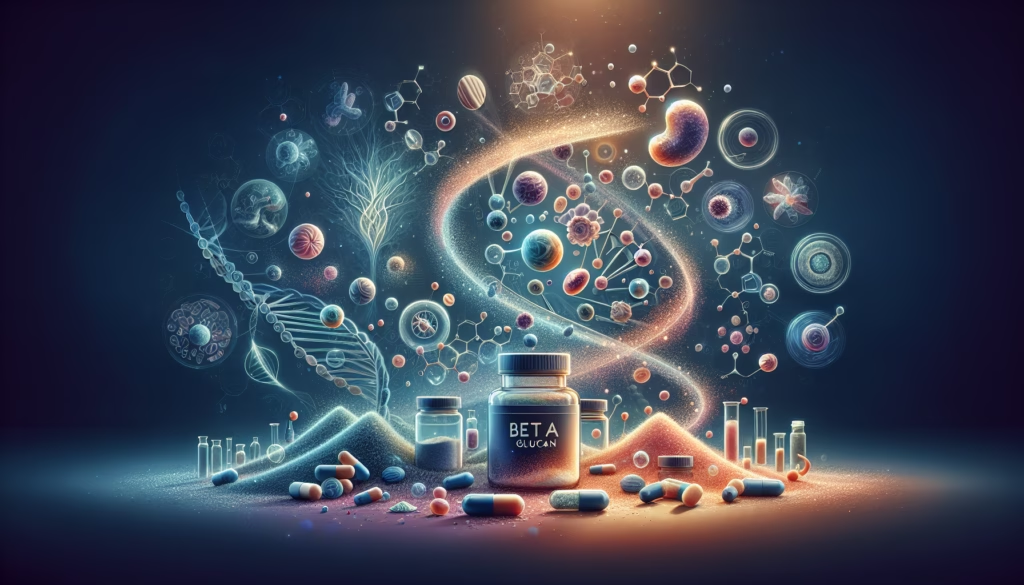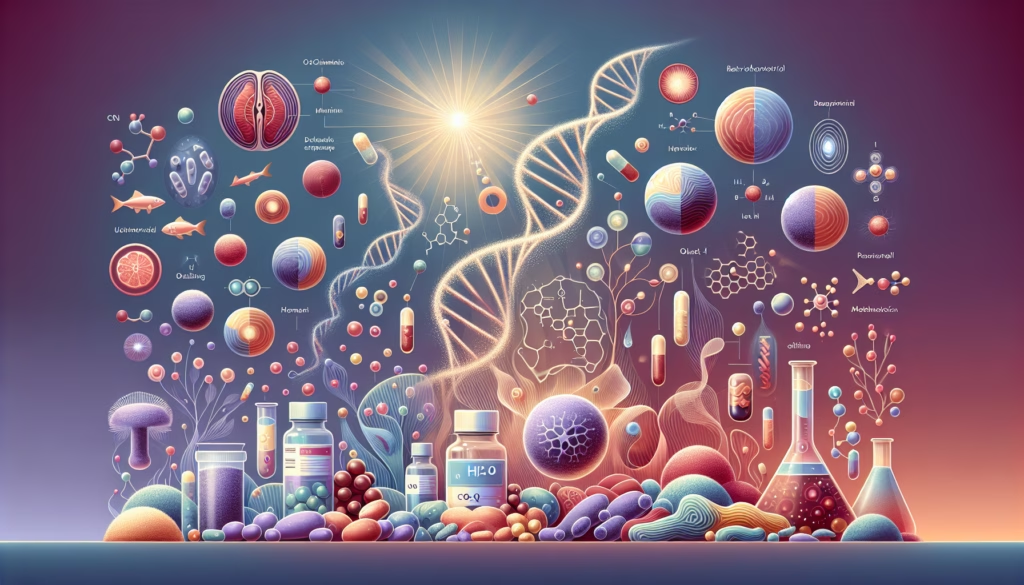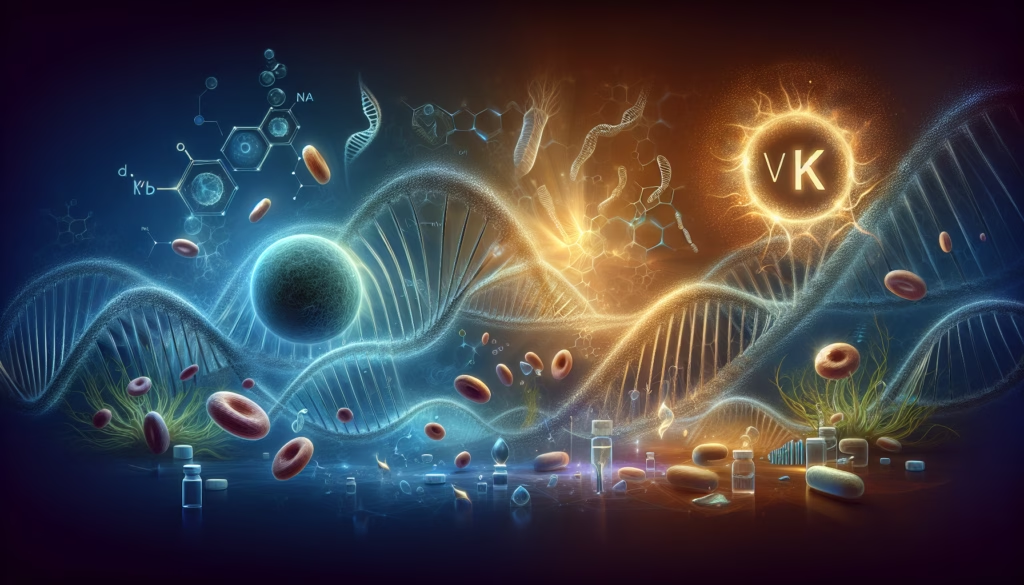
Beta Glucan
Discover the science-backed potential of beta glucan as an adjunct in cancer therapy. This post delves into the latest research
Click 
Luteolin is a natural flavonoid present in a range of plants, including fruits, vegetables, and herbs. Its molecular mechanisms involve the modulation of multiple signalling pathways that play crucial roles in inflammation, cell proliferation, and apoptosis.
Research indicates that Luteolin exhibits anti-cancer properties through several mechanisms:
While these mechanisms are promising, it is essential to note that most research on Luteolin’s anti-cancer effects is derived from in vitro and in vivo studies. Clinical trials remain limited, and further research is requisite to validate these findings in humans and to establish its efficacy as either a standalone or adjunctive cancer treatment.
There is currently no established standardised safe dosage for Luteolin as a cancer treatment in humans. Clinical trials investigating dosage, efficacy, and safety are limited, with doses in studies ranging from 50 mg to 600 mg per day.
Breast Cancer, Colorectal Cancer, Leukemia, Lung Cancer, Pancreatic Cancer, Prostate Cancer
While luteolin shows promising anticancer properties, its effects vary significantly by dosage and context. Current research reveals several important considerations regarding side effects and therapeutic dosing:
Gastrointestinal Effects
Hormone Interactions
Cancer-Specific Risks
Neurological Effects
Metabolic Activation
CYP1A1/1A2 enzymes enhance luteolin’s genotoxicity through bioactivation2, increasing DNA damage and chromosome abnormalities at therapeutic concentrations2.
Chemotherapy Interactions
Safety Margins
While animal studies show high LD50 (>2500 mg/kg)3, human equivalent doses remain unclear. Typical dietary intake (1-2 mg/day)5 is far below therapeutic ranges used in research.
Clinical Precautions:
Current evidence emphasises careful dosing stratification in cancer therapy rather than broad-spectrum supplementation.
Luteolin demonstrates enhanced anticancer effects when combined with various chemotherapeutic agents, as shown in recent studies. These combinations show synergistic effects through multiple mechanisms, often allowing reduced drug doses while maintaining efficacy.
Oxaliplatin combinations: Increase mitochondrial ROS production and reduce heme oxygenase-1 cytoprotection26
Sorafenib pairings: Potentiate apoptosis via caspase-3 activation and JNK pathway modulation3
Celecoxib synergy: Amplify Akt pathway inhibition, overcoming chemoresistance in triple-negative breast cancer4
Nanodelivery systems: Polymeric micelles improve luteolin’s bioavailability (typically <1% in free form)1
Dose-dependent synergy allows lower chemotherapy doses (e.g., oxaliplatin reduced to 25% of standard concentration with luteolin)6
Combination index (CI) values <1 confirm true synergy in colorectal and gastric cancer models26
PARP inhibitor combinations show promise for BRCA-mutant cancers8
These studies suggest luteolin’s role as a chemosensitizer, though human trials are needed to validate optimal dosing and safety profiles157.
– US National Library of Medicine research on Luteolin
Luteolin, a naturally occurring flavonoid, shows promise in improving quality of life for cancer patients in several ways:
Enhanced Treatment Efficacy
Luteolin may potentiate the effects of chemotherapy drugs, allowing for lower doses with reduced side effects. For example, it synergises with oxaliplatin in gastric cancer treatment, enabling a 75% reduction in oxaliplatin dosage while maintaining efficacy15.
Reduced Side Effects
By allowing lower chemotherapy doses, luteolin could help minimise debilitating side effects, potentially improving overall well-being during treatment1.
Anti-inflammatory Effects
Luteolin’s anti-inflammatory properties may help alleviate cancer-related inflammation, potentially reducing pain and discomfort6.
Antioxidant Benefits
As an antioxidant, luteolin can help protect healthy cells from oxidative stress caused by cancer treatments, potentially reducing treatment-related fatigue and other symptoms3.
Potential Mood Benefits
While not directly studied in cancer patients, luteolin’s neuroprotective effects suggest it may help mitigate mood disturbances often associated with cancer treatment7.
Improved Appetite and Digestion
Luteolin’s effects on gastrointestinal inflammation may help improve appetite and digestion, which are often impaired during cancer treatment6.
However, it’s crucial to note that luteolin can interact with certain treatments. For instance, it may reduce the effectiveness of some chemotherapy drugs by activating antioxidant pathways4. Therefore, cancer patients should always consult their oncologist before incorporating luteolin supplements into their regimen.
While promising, more human clinical trials are needed to fully establish luteolin’s impact on cancer patients’ quality of life. Its effects may vary depending on cancer type, treatment regimen, and individual factors.
We’ve done our best to include as much information as possible for this supplement.
If you have any other questions, please send us a message or join our Skool Group and ask our knowledgeable and friendly community.
Luteolin is generally available as a dietary supplement in the UK, EU, USA, Australia, and NZ. Available procurement channels include online retailers, health food stores, and pharmacies.
Research indicates varying response rates among cancer warriors, with a generally reported efficacy rate of around 20-40% in preclinical models.
Luteolin’s anticancer efficacy can be influenced by several molecular resistance markers identified in recent studies. These biomarkers affect treatment viability through various mechanisms:
NF-κB Activation
High NF-κB activity counteracts luteolin’s pro-apoptotic effects by blocking TNF-α-induced cancer cell death2. Luteolin suppresses NF-κB to overcome this resistance mechanism2.
AIM2 Inflammasome
Elevated AIM2 expression in non-small cell lung cancer (NSCLC) promotes:
Epithelial-mesenchymal transition (EMT) via increased Vimentin/MMP9
Cancer stemness through IL-1β/caspase-1 signalling
Luteolin downregulates AIM2 by 50-70% at 80 μM concentrations, restoring drug sensitivity3.
Nrf2 Pathway
Breast cancer stem cells with activated Nrf2 pathways show:
3-fold higher ALDH+ populations
Enhanced sphere-forming capacity
Luteolin suppresses Nrf2-mediated CD44/Oct4 signalling, reducing stemness markers by 60-80%6.
EMT Markers
Paclitaxel-resistant ovarian cancers exhibit:
5-fold increase in Vimentin
90% reduction in E-cadherin
Luteolin reverses EMT by normalising these markers at 20-40 μM doses7.
Tumors with high baseline AIM2 or NF-κB activity may require 30-50% higher luteolin doses32
Nrf2-positive breast cancers show 40% reduced response to luteolin monotherapy6
Combination with EMT inhibitors (e.g., taxanes) improves efficacy in resistant ovarian cancers7
These findings suggest pre-treatment biomarker analysis could optimise luteolin-based therapies, particularly for NSCLC and hormone receptor-negative breast cancers36. Resistance mechanisms appear cancer-type specific, requiring tailored combination approaches.
Numerous preclinical studies have explored Luteolin’s anti-cancer properties in vitro and in vivo, demonstrating promising results. However, these findings require validation through rigorous clinical trials.
At present, there are no actively recruiting clinical trials that specifically investigate Luteolin as a primary treatment for cancer.
For ongoing studies, refer to clinicaltrials.gov.
Several genetic markers have been identified that can inhibit luteolin’s therapeutic effectiveness, based on recent research findings:
DNMT Overexpression
High expression of DNA methyltransferases (DNMT1, DNMT3A, DNMT3B) counteracts luteolin’s ability to demethylate and activate tumor-suppressive genes like Nrf2. Cells with elevated DNMT levels show reduced sensitivity to luteolin-induced apoptosis2.
Efflux Pump Genes
ABC Transporters: Overexpression of ABCG2 and P-glycoprotein in multidrug-resistant cancers reduces intracellular luteolin accumulation, limiting its efficacy14.
MATE Gene: In bacterial models, the MATE efflux pump confers resistance to antibiotics like gentamicin, which luteolin counteracts by downregulating MATE expression. Human homologs of efflux pumps may similarly impair luteolin activity3.
p53 Mutations
Loss of functional p53 prevents luteolin from inducing cell cycle arrest and apoptosis in cancers like breast and ovarian. Mutant p53 fails to activate downstream targets like p21, even when luteolin triggers DNA damage responses17.
AP2B1, GPNMB, DLST Overexpression
Elevated expression of these genes in breast cancer correlates with resistance:
NF-κB Pathway Activation
Constitutive NF-κB signalling (e.g., phospho-p65) protects cancer cells by maintaining anti-apoptotic proteins (Bcl-2, XIAP). Luteolin-resistant cells often retain NF-κB activity despite treatment1.
Anti-Apoptotic Protein Upregulation
High baseline levels of Bcl-2, survivin, or cIAP1 reduce luteolin’s ability to trigger mitochondrial apoptosis, particularly in resistant colon and ovarian cancers14.
These markers highlight the need for pretreatment genetic profiling to optimise luteolin-based therapies. Combining luteolin with DNMT inhibitors (e.g., 5-aza-dC) or efflux pump blockers may overcome resistance in relevant cancers24.

Discover the science-backed potential of beta glucan as an adjunct in cancer therapy. This post delves into the latest research

Explore the emerging world of hydrogen gas (H₂), also known as Brown Gas, and its remarkable potential as an adjunct

Explore the latest scientific insights into vitamin K2 and its promising role in cancer therapy. In this comprehensive blog post,
Apoptosis, or programmed cell death, is a natural process where cells self-destruct when they are damaged or no longer needed. This is crucial for maintaining healthy tissues and preventing diseases like cancer.
Drugs and supplements that induce apoptosis help eliminate cancerous cells by triggering this self-destruct mechanism, ensuring that harmful cells are removed without damaging surrounding healthy tissue.
Understanding and harnessing apoptosis is vital in the fight against cancer, as it targets the root cause of the disease at the cellular level.
Cell proliferation is the process by which cells grow and divide to produce more cells. While this is essential for growth and healing, uncontrolled cell proliferation can lead to cancer.
Drugs and supplements that inhibit cell proliferation help prevent the rapid multiplication of cancerous cells, slowing down or stopping the progression of the disease.
By targeting the mechanisms that drive cell division, these treatments play a vital role in controlling and potentially eradicating cancer.
Cancer cells often hijack specific biological pathways to grow and spread. Drugs and supplements that target these pathways can disrupt the cancer cell’s ability to survive and multiply.
By focusing on the unique mechanisms that cancer cells use, these treatments can be more effective and cause fewer side effects compared to traditional therapies.
Targeting specific pathways is a key strategy in precision medicine, offering a tailored approach to combat cancer at its core.
Angiogenesis is the process by which new blood vessels form, supplying nutrients and oxygen to tissues. Cancer cells exploit this process to fuel their growth and spread.
Drugs and supplements that inhibit angiogenesis can effectively starve cancer cells by blocking the formation of these new blood vessels.
By cutting off the supply lines that tumors rely on, angiogenesis inhibitors play a crucial role in controlling and potentially shrinking cancerous growths.
Immunotherapy harnesses the power of the body’s immune system to combat cancer. By boosting or restoring the immune system’s natural ability to detect and destroy cancer cells, immunotherapy offers a targeted and effective approach to treatment.
Drugs and supplements that support immunotherapy can enhance the immune response, making it more efficient at identifying and attacking cancer cells.
This innovative approach not only helps in treating cancer but also reduces the risk of recurrence, providing a powerful tool in the fight against this disease.
Inflammation is the body’s natural response to injury or infection, but chronic inflammation can contribute to the development and progression of cancer.
Drugs and supplements with anti-inflammatory properties help reduce inflammation, thereby lowering the risk of cancer and other chronic diseases.
By targeting the inflammatory processes, these treatments can help maintain a healthier cellular environment and prevent the conditions that allow cancer to thrive.